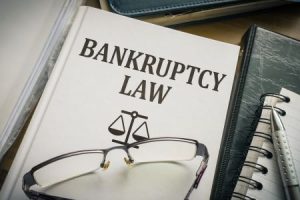Top Five Bankruptcy Exemptions In Illinois

When Monopoly players declare bankruptcy, they automatically lose all their green plastic houses, along with all their other property. Fortunately, the real world is different. Homestead exemptions vary in different states. Illinois’ homestead exemption is broader than most. So are the other bankruptcy exemptions in The Land of Lincoln. That’s good news for debtors. Their homes are a lot more valuable than tiny pieces of plastic.
The written exemptions are only the beginning. An experienced Chicago bankruptcy lawyer knows how to maximize property exemptions, which means you maximize your fresh financial start. The same property exemptions are available in both Chapter 7, which is designed for people with crippling unsecured debts, and Chapter 13, which is largely for people who are behind on secured debt payments.
House
Illinois law exempts up to $15,000 in home equity. So, if the equity is higher, trustees (people who oversee bankruptcy cases for judges) can technically seize the property. Fortunately, as mentioned, the written exemptions are just the beginning.
By law, debtors must declare the as-is cash value of an asset on Schedule A. Offers from “We Buy Ugly Houses” and other home investors, which are as-is cash offers, are typically much lower than tax appraisal values. In fact, these offers are usually pennies on the dollar. The lower a home’s value is, the easier it is to protect it in bankruptcy.
A little known loophole, the tenancy in common rule, is also available, especially if only one spouse or homeowner files bankruptcy. If the other owner is a tenant as opposed to an owner, it’s illegal to seize the house. No one can take one person’s property to satisfy the debts of someone else.
These loopholes are quite complex. So, only a seasoned Chicago bankruptcy lawyer should try to use them.
Motor Vehicle
Basically the same legal and practical rules apply to the $2,400 motor vehicle equity property exemption.
Owners have practically no equity in newer cars and trucks. Their monthly payments go mostly to prepaid interest, since these loans are amortized. Conversely, owners have nothing but equity in used vehicles. However, these vehicles have practically no cash value. That’s especially true if a debtor gets an offer from an as-is cash sale vehicle investor.
Another little known loophole, the best interests of creditors rule, sometimes applies as well, especially to boats and other non-exempt vehicles. Assume Tim owns a small boat that needs substantial work. There’s a good chance that, after the trustee pays all repair costs and other sales costs, nothing will be left to distribute among creditors. Since a property seizure wouldn’t be in their best interests, the trustee cannot touch Tim’s boat.
FSOs
Family Support Obligations, like alimony and child support, usually aren’t dischargeable in bankruptcy, although they are unsecured debts.
FSOs are usually exempt as well, no matter how much money the debtor receives every month. This exemption protects an important income stream.
Retirement Account
Frequently, an IRA, 401(k), or other retirement account is a family’s largest financial asset. Much like family homes, these accounts also have substantial emotional value. They represent retirement security and a reward for a lifetime of financial discipline.
The Supreme Court recently held that these accounts are 100 percent exempt, regardless of their financial value.
Wildcard
Many states don’t have wildcard property exemptions. But Illinois has a $4,000 wildcard exemption that debtors can use to protect otherwise non-exempt property. Debtors may use the entire wildcard on a single piece of property or spread it among different items. Illinois’ wildcard exemption can’t be used to protect real property.
Rely on a Dedicated Cook County Lawyer
No matter what kind of financial problem you are having, bankruptcy could be a way out. For a free consultation with an experienced bankruptcy attorney in Chicago, contact the Bentz Holguin Law Firm, LLC. We routinely handle matters throughout the Prairie State.


